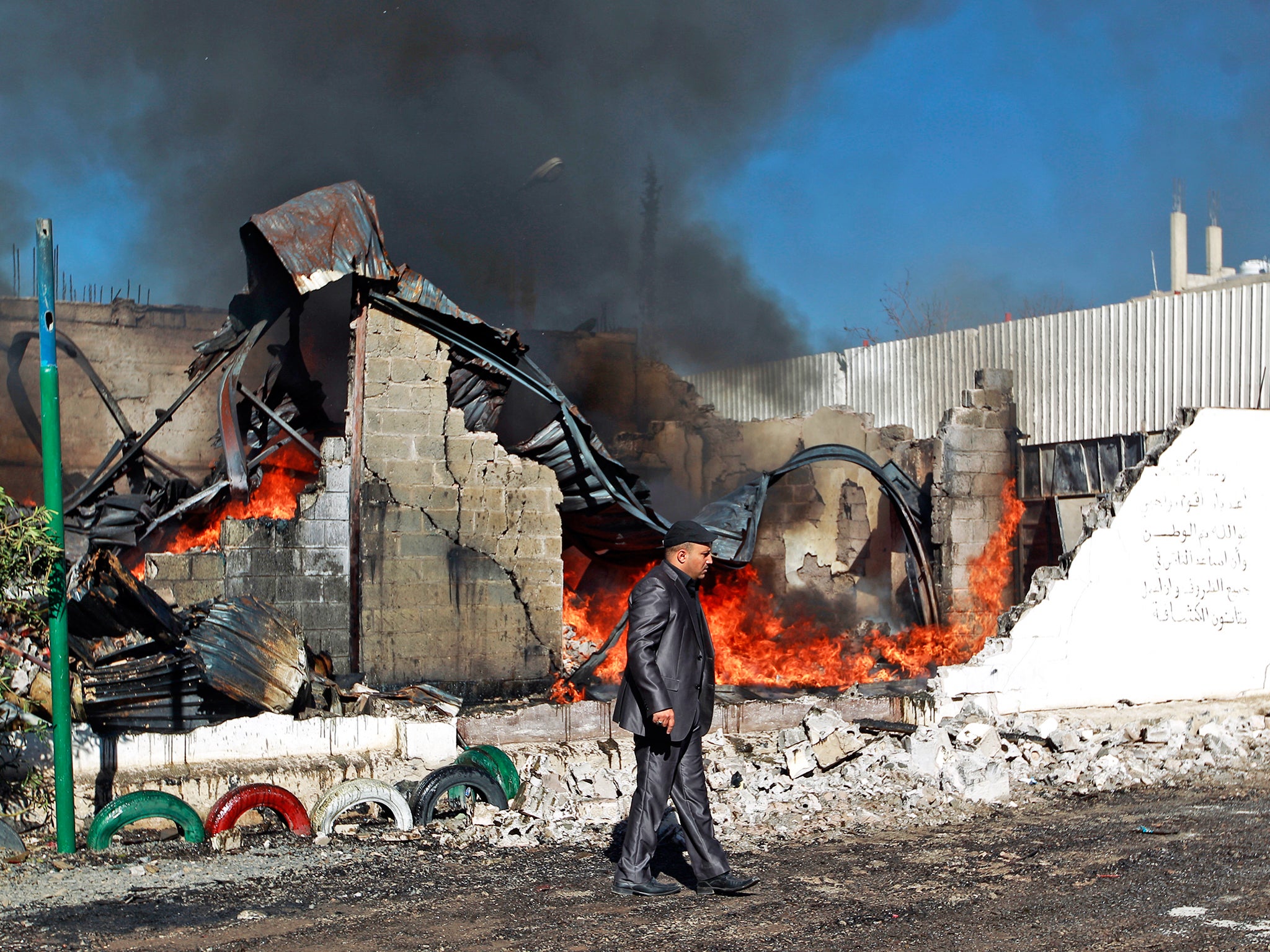Global Peace Index: Yemen suffers worst drop on peacefulness in 2016
The intervention of Saudi Arabia and other Gulf states has seen Yemen turn from civil war to regional crisis

Your support helps us to tell the story
From reproductive rights to climate change to Big Tech, The Independent is on the ground when the story is developing. Whether it's investigating the financials of Elon Musk's pro-Trump PAC or producing our latest documentary, 'The A Word', which shines a light on the American women fighting for reproductive rights, we know how important it is to parse out the facts from the messaging.
At such a critical moment in US history, we need reporters on the ground. Your donation allows us to keep sending journalists to speak to both sides of the story.
The Independent is trusted by Americans across the entire political spectrum. And unlike many other quality news outlets, we choose not to lock Americans out of our reporting and analysis with paywalls. We believe quality journalism should be available to everyone, paid for by those who can afford it.
Your support makes all the difference.Yemen has been named as the country which suffered the sharpest fall in peacefulness in the last year, according to the 2016 Global Peace Index.
The country’s civil war has escalated into a regional conflict, due to the intervention of Saudi Arabia and a coalition of Gulf States.
The Institute for Economics and Peace (IEP), which produces the index, said Yemen was the “standout example” of a breakdown of peace in the Middle East that has seen the world as a whole become a more dangerous place in 2016 than at any point in the past decade.
While Syria maintained its position at the bottom of the index of 163 countries, Yemen suffered by far the greatest deterioration in terms of ranking, falling nine places to 158th.
And Yemen’s peacefulness “score”, calculated based on a host of factors such as deaths from conflict and military spend, dropped a staggering 15 per cent in the past 12 months – deteriorating twice as fast as Ukraine, the next-worst performer year on year.
Steve Killelea, the founder of the IEP, said that across the world “more countries improved than deteriorated”, by 81 compared to 79.
“If you took the Middle East out of the index, last year the world would have actually become more peaceful,” he told The Independent.
The report found Yemen had suffered its biggest losses in score as a result of increases in death from conflict and “a massive rise in the number of refugees and internally-displaced people”.
But it also deteriorated in terms of societal factors, such as “perceptions of criminality”, “likelihood of violent demonstrations” and what IEP calls the “Political Terror Scale” – a measure of political violence, imprisonments and disappearances.
“Yemen is a standout example of the increase we have seen in ‘proxy wars’ in the Middle East, something which is new and emerging over the last 12 months,” Mr Killelea said.
“With some Arab nations fighting for influence with Iran, we are seeing the complexity of these conflicts grow, compared let’s say with the original invasions of Afghanistan and Iraq.”
After 10 years of compiling the index, Mr Killelea said the deterioration of Yemen and other neighbouring states was one of the biggest causes for pessimism in terms of the outlook for peace around the world.
He said: “The current conflict in the Middle East, if it was to spiral further out of control and extend into other countries, that may usher in an extended period of lower levels of peacefulness.
“It depends on the decisions which are made in terms of how we manage the Middle East over the next year or two.”
Join our commenting forum
Join thought-provoking conversations, follow other Independent readers and see their replies
Comments